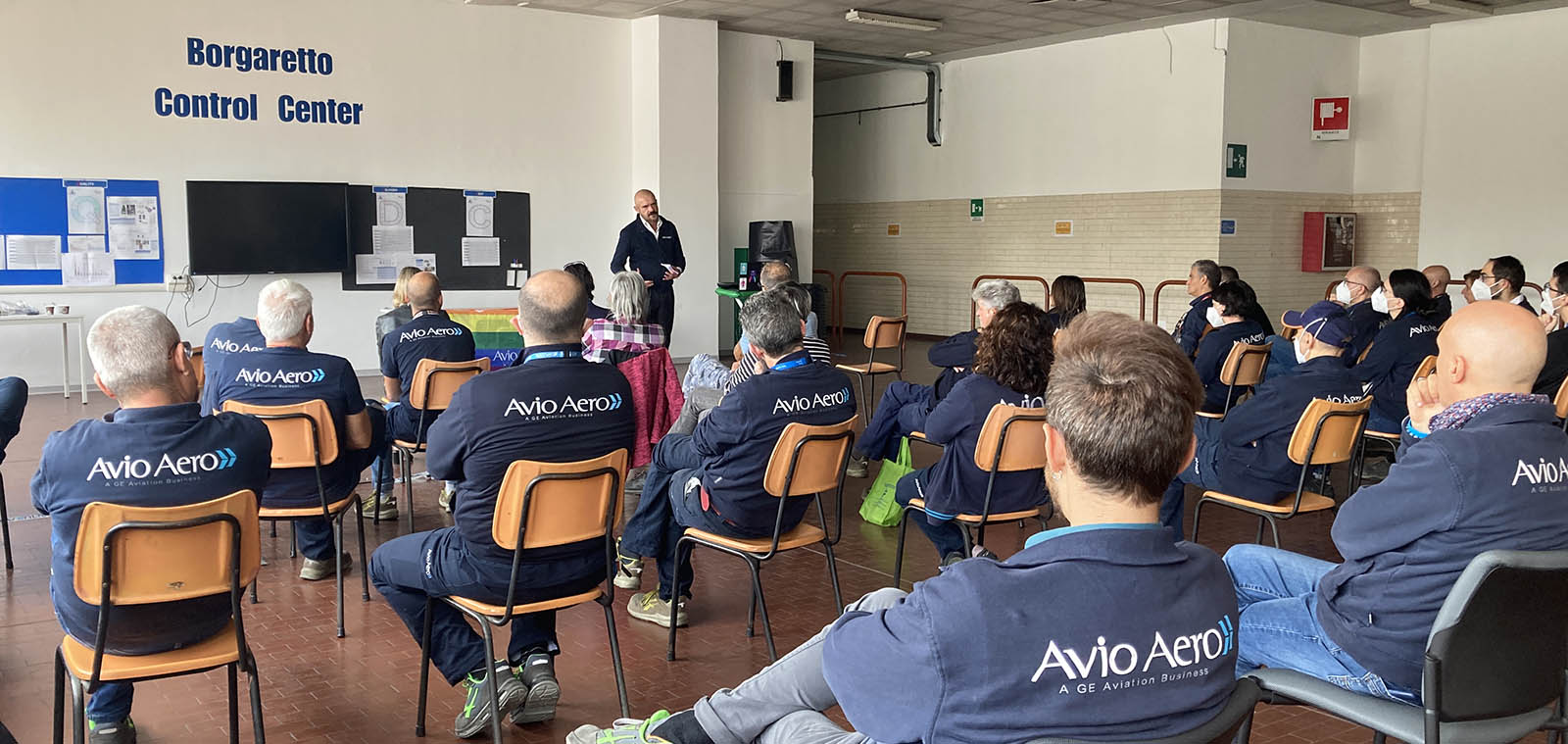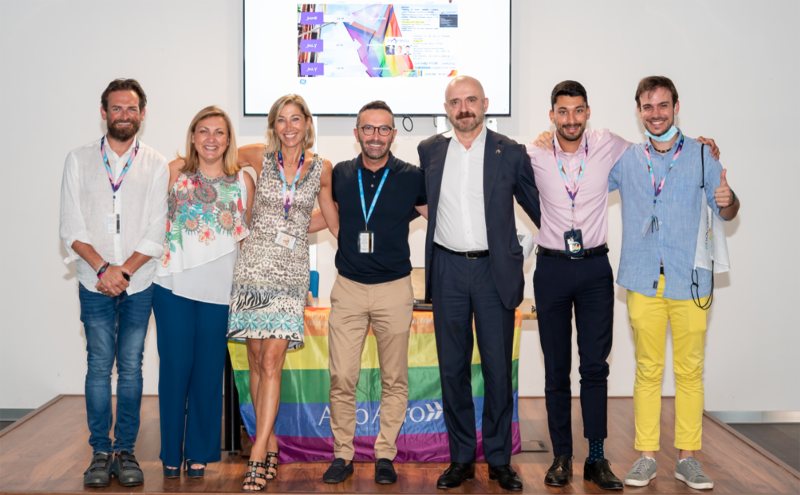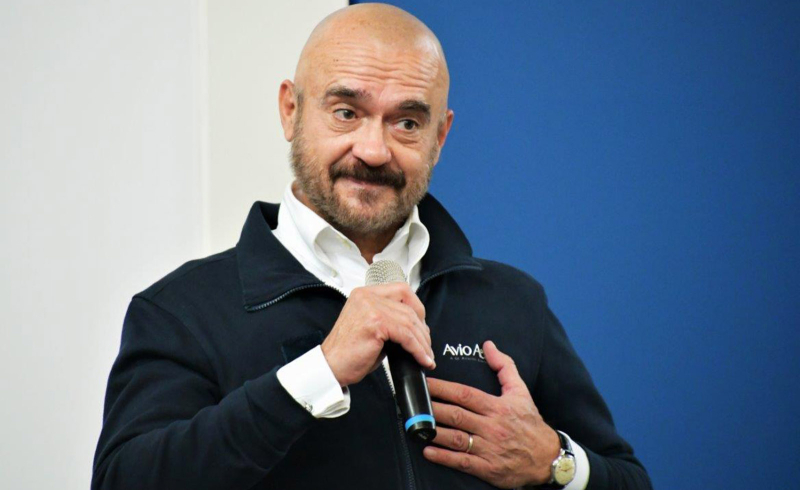Culture
Words like bridges
Three Avio Aero locations engaged in a series of meetings with a common goal, focusing on inclusion abilities right from the language at work, as well as at home or in social environments.
Oct 2022
The people of Avio Aero located at Brindisi, Pomigliano d’Arco and Rivalta di Torino sites - three territories boasting their own peculiarities and well-defined characteristics - have decided to embark on a common path of awareness on inclusion by focusing on what unites everyone, although with local linguistic nuances and typical verbal expressions. That is the words we use.
Starting with the words used and with the way they are used to generate virtuous behaviors is certainly a challenging approach, as language is the very expression of culture and its legacies. The three Avio Aero sites therefore decided to be accompanied on their journey by the expert Igor Suran, Executive Director of Parks Liberi e Uguali. Parks is an association that helps companies, large or small, understand and achieve to the fullest the business potential associated with developing diversity-friendly strategies and best practices.
Croatian by birth and Italian by adoption, Igor has made available to the people of Avio Aero not only his experience in the field of inclusion policies, but also his multilingual expertise which has enabled him to develop a path to ensure that the words we say and hear are not divisive but become elements of cohesion.
Igor recently visited the Borgaretto and Rivalta di Torino offices, after Pomigliano and Brindisi, to meet with employees during a series of events and reflect with them on what the functions of language are and why inclusive language must be part of our corporate journey of equity and inclusion. One that is human too.
Our conversation with Igor also helped us to better frame the theme of the influence of language on gender identity. Indeed, one often wonders if the use of the asterisk, the schwa or other signs that cancel the masculine and feminine endings is an attempt to change the language for a real need or is it just formalism. Or if there is even the risk that our identities are canceled. “I don't see this risk. My identity, my identities, will not be erased, deleted, questioned. I will always be me and I will find in the asterisk or schwa a meaning that reflects myself", explains Igor.
"However, by using them, you give the opportunity to all those people who, until now, have not recognized themselves in the traditional language to feel represented. The controversy is therefore dispensable, because nothing is taken away from anyone, in fact, something more is actually given. Of course, I realize that pronouncing the asterisk is not simple and it is even more complicated to use the schwa... Since I am not a linguist, I cannot give my opinion on what words may one day replace these options. However, I can say such attention is first of all in our very thoughts, because language is the means of expressing thought and, if there is a will to include those who do not recognize themselves in the masculine and feminine forms, we can use such solutions”.
Igor was also able to comment on the public objection raised by many that certain groups, or their arguments, may be more represented or protected than others. "Talking about these topics is not about creating categories of privileged people, about making them more important, more free... the goal is to make them equally important, privileged or free. We need to remember that, not so long ago, these issues were taboo (as they still are in some countries and specific circles, even those very close to us) and that talking and naming things, instead, means making them exist in reality".
Igor's position with respect to the change in mentality and culture is also clear: "sometimes, it may seem that all the progresses made would stop, waiting to start again... nevertheless, the cultural movements, however slow, continue to produce effects that will thrive over time. Speed is not the only indicator of change, the intensity and activation capacity of all actors - households, schools, businesses, civil society - also play their part. These areas are strongly interrelated: for example, a certain segment of the more adult population in the family may not have heard of these issues but, if they are discussed within the company, they will bring them home and be able to handle, for example, conversations with their children who, as young people, actually are more knowledgeable. That is why it is important to continue the work of raising awareness in companies, in schools and in all areas where it is possible”.
"The cultural movements, however slow, continue to produce beneficial effects over time; speed is not the only indicator of change, the intensity and activation capacity of all actors: households, schools businesses, civil society also play their part"
During the workshops, the key message revolved around the ability to listen. "Creating the conditions for listening is key”, said Igor. “In order to listen, there must be a willingness to talk, to open up, and only in a safe and free environment can this happen. Only by creating a safety zone in which empathy can be fostered, dialogue can be initiated and prejudices overcome”.
In addition to being very engaging meetings, the conversations about language were also very interactive. Employees and workers found themselves reflecting for the first time on words, even those in common use such as "family" and their broader, modern meaning, and how, in the absence of a common register, they can lose the harmony of their meaning.
"One cannot assume that what each person experiences and feels is shared in the same way by another person”, Igor concluded. “Applying one's own assumptions is the biggest mistake. If we want to speak in inclusive words, we have to be sure that those words mean the same thing in people's minds, and this can be done only through the habit of comparison. Only then, will words generate bridges, not walls”.







